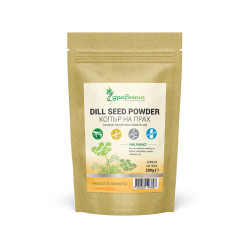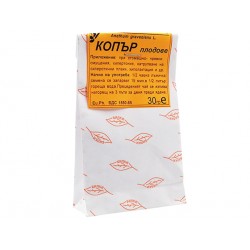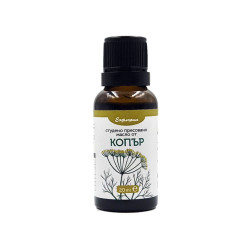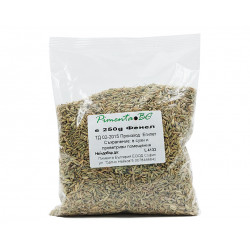Dill (Anethum graveolens) is an annual plant from the Apiaceae family, originating from the Eastern Mediterranean and Western Asia. It has been used since ancient times in Egypt, Greece, and Rome, not only as a culinary spice but also as a medicinal herb.
In Bulgaria, dill is widely cultivated. It thrives in sunny locations with well-drained soil. The leaves are harvested before flowering, and the mature seeds—often called dill fruits—are collected when they turn brown and are dried in the shade. They are used for culinary, therapeutic, and cosmetic purposes.
Health Benefits of Dill
Dill contains essential oils (carvone, limonene), vitamins A, C, and B-complex, calcium, iron, magnesium, flavonoids and antioxidants.
Digestive System
Relieves gas, bloating, and colic. Stimulates appetite and digestive enzyme secretion. Aids in gastritis and indigestion treatment.
Cardiovascular System
Helps regulate blood pressure. Improves circulation. Has a mild diuretic effect.
Endocrine and Hormonal Balance
Eases symptoms of PMS and menopause. May support blood sugar regulation.
Immune System
Antimicrobial and anti-inflammatory effects. Strengthens the body’s natural defenses.
Nervous System
Calming effect on anxiety and stress. Supports better sleep and relaxation.
Medicinal Use of Dill Seeds, Dill Seed Flour, and Cold-Pressed Dill Seed Oil
Dill Seeds
Tea: Use 1 tsp of crushed seeds in 250 ml of boiling water. Suitable for digestive issues, colic, and tension.
Infusion: Used to relieve gas in infants and children.
Dill Seed Flour
Internal use: Can be added to bread, crackers, and soups to support digestion and add aroma.
External use: Mixed with water to create a paste for skin irritation relief.
Cold-Pressed Dill Seed Oil
Internal use: Rich in omega-6 fatty acids, vitamin E, and phytonutrients.
Culinary Use of Dill Seeds and Flour
Seeds: Used to flavor pickles, meats, breads, soups, and marinades. Add a spicy, slightly sweet taste.
Flour: Suitable for savory baked goods; improves digestion and adds aromatic character.
Cosmetic Benefits of Dill
Dill contains valuable skin-friendly compounds:
- Antioxidant protection: Slows aging processes
- Anti-inflammatory effect: Soothes redness and rashes
- Hydration: Nourishes dry and sensitive skin
Homemade Cosmetics with Dill
Face Mask with Fresh Dill
Ingredients: 1 tbsp finely chopped fresh dill + 1 tbsp yogurt
Use: Apply to clean face for 15 minutes, then rinse with lukewarm water.
Skin Tonic with Dill Seeds
Ingredients: 1 tsp crushed seeds + 250 ml boiling water
Use: After cooling and straining, use morning and evening as a facial toner.
Nourishing Oil for Face and Body
Ingredients: 1 tbsp cold-pressed dill seed oil + 1 tsp rosehip or jojoba oil
Use: Apply in the evening to clean skin for hydration and regeneration. Suitable for dry, irritated, or mature skin.
Dill is more than just a culinary herb – it is a true natural remedy. It supports digestion, the heart, immunity, skin health, and hormonal balance. Used as tea, flour, or cold-pressed oil, it has a place in home medicine, cooking, and skincare. Easy to grow, widely available, and rich in healing power, dill deserves a special place in every home.








